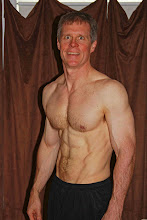Link
Note that there's no mention of increasing artificial sweeteners - there's good reason.
According to another study, there's growing evidence use of sucralose (Splenda) and other diet sweeteners can lead to weight gain.
Link2
One worry about artificial sweeteners is that they uncouple sweetness and energy. Until recently, sweet taste meant sugar, and thus energy. The human brain responds to sweetness with signals to, at first, eat more and then with signals to slow down and stop eating. By providing a sweet taste without any calories, artificial sweeteners could confuse these intricate feedback loops that involve the brain, stomach, nerves, and hormones. If this happens, it could throw off the body's ability to accurately gauge how many calories are being taken in.
Studies in rats support this idea. Purdue University researchers have shown that rats eating food sweetened with saccharin took in more calories and gained more weight than rats fed sugar-sweetened food. (14) A long-term study of nearly 3,700 residents of San Antonio, Texas, showed that those who averaged three or more artificially sweetened beverages a day were more likely to have gained weight over an eight-year period than those who didn't drink artificially sweetened beverages. (15) Although this finding is suggestive, keep in mind that it doesn't prove that artificially sweetened soft drinks caused the weight gain.
Imaging studies support the idea that sugar and artificial sweeteners affect the brain in different ways. Some parts of the brain become activated when we experience a "food reward." At the University of California-San Diego, researchers performed functional MRI scans as volunteers took small sips of water sweetened with sugar or sucralose. Sugar activated regions of the brain involved in food rewards, while sucralose didn't. (16) So it is possible, the authors say, that sucralose "may not fully satisfy a desire for natural caloric sweet ingestion." More research is needed to tease out the implications of these findings for weight control.
Although the scientific findings are mixed and not conclusive, there is worrisome evidence that regular use of artificial sweeteners may promote weight gain. Because of these mixed findings about artificial sweeteners, drinking diet soda may not be the best replacement for drinking sugary soda.
Recently I gave up my Splenda in the morning coffee for this reason. It was becoming a bit too habit forming at the least, not sure of the total effects but I thought - why deal with it? Let's get to the next level without fooling anyone - my brain, body etc which probably fights back against it anyway.
Agrees with the bottom line of the Harvard study
So what's the best choice for your health? For adults and children, the evidence is strong that cutting back on sugary drinks—or eliminating them altogether—may help with weight control and will almost surely lower the risk of diabetes. There's emerging evidence that sugary drinks increase the risk of heart disease.The evidence is less clear-cut for artificially sweetened drinks. For adults trying to wean themselves from sugary soda, diet soda may be the beverage equivalent of a nicotine patch: something to be used in small amounts, for a short time, just until you kick the habit. For children, the long-term effects of consuming artificially-sweetened beverages are unknown, so it's best for kids to avoid them.

